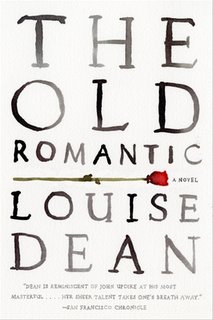
18 Feb 2011 00:39:55
Start with unfamiliar references to Selfridges, Wade Whimsies, Maltesers and the Krankies (which are, respectively, a department store, porcelain figurines, candy and Scottish comedians, if you're interested). Add a dash of working-class dialect and slang, including an old man who drops his consonants and uses "cor!" and "coo!" as exclamations.
Even more alien, the novel deals with that typically English obsession: class (Americans might live with even sharper class distinctions, but we're better at pretending they don't exist).
The setting is the down-and-out coastal city of Hastings, where "people seem to tumble down ... and not get up to go home again. It's where they turn up, every Jack and Jill that ever fell out with the family, lost a job, had half an idea, got a bad habit."
Dean's main character has left all that behind. Educated at Cambridge, living prosperously as a family law solicitor, he's changed his name from Gary to the more posh Nick, and cut off ties to his bumptious working-class family. He's a snob, but his divorced parents are such stubborn and difficult people that it's easy to understand why he wants nothing to do with them.
After years apart, they are drawn together again because Nick's elderly father, Ken, believes he's going to die soon and asks Nick to draw up a will. You can feel it coming, can't you? Your heart is about to be warmed as the distant son rediscovers his sentimental attachment to his parents, a prodigal son come home to even more prodigal parents.
It might be a conventional plot, but it's where the book works well. The particulars of southeastern England may be foreign to American readers, but the leap away from home and its lingering regrets are not. We polish our accents, our tastes and manners grow more sophisticated, but home and family are still there under the surface. Nick and his brother, like their father, "were sons of this land, this corner of England. This land made them, it made the people who made them, and gave them certain interests and manners that you couldn't change in one lifetime."
Even more alien, the novel deals with that typically English obsession: class (Americans might live with even sharper class distinctions, but we're better at pretending they don't exist).
The setting is the down-and-out coastal city of Hastings, where "people seem to tumble down ... and not get up to go home again. It's where they turn up, every Jack and Jill that ever fell out with the family, lost a job, had half an idea, got a bad habit."
Dean's main character has left all that behind. Educated at Cambridge, living prosperously as a family law solicitor, he's changed his name from Gary to the more posh Nick, and cut off ties to his bumptious working-class family. He's a snob, but his divorced parents are such stubborn and difficult people that it's easy to understand why he wants nothing to do with them.
After years apart, they are drawn together again because Nick's elderly father, Ken, believes he's going to die soon and asks Nick to draw up a will. You can feel it coming, can't you? Your heart is about to be warmed as the distant son rediscovers his sentimental attachment to his parents, a prodigal son come home to even more prodigal parents.
It might be a conventional plot, but it's where the book works well. The particulars of southeastern England may be foreign to American readers, but the leap away from home and its lingering regrets are not. We polish our accents, our tastes and manners grow more sophisticated, but home and family are still there under the surface. Nick and his brother, like their father, "were sons of this land, this corner of England. This land made them, it made the people who made them, and gave them certain interests and manners that you couldn't change in one lifetime."

